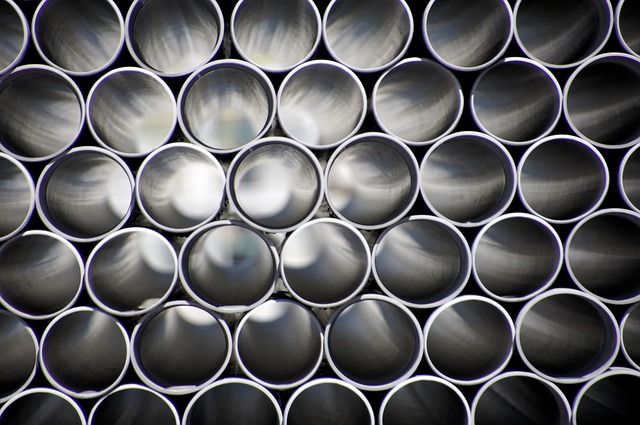Petrochemical producer Westlake expands downstream by adding construction, lightweight materials businesses
Westlake, a Houston-based chemical producer, has turned into also a large construction and lightweight materials supplier with nationwide presence and dozens of PVC and other specialty products offerings through multiple brand names. Its North American reach to final consumers has extended following nearly $4 billion of recent acquisitions.

“Building products tend to have much lower cutback intensity than chemicals,” said Albert Chao, president and CEO, during the Investor Day conference with the New York Stock Exchange on April 9 as he explained the move.
Lower volatility can make earnings more foreseeable and reduce dependance on chemical cycles, he added. “Demand for chemicals relatively speaking is relatively steady, globally. It´s the capacity addition that makes it more cyclical,” Chao said.
Setting sights further downstream will make it easier to find new investment opportunities as the materials construction business is fragmented.
“You can put a plant for $20, $30, $40 million. We have much more flexibility to do more acquisitions, building plants, expanding plants,” he said. Most competitors in building materials may lack the same capital access.
On the building products materials the competition is also much bigger than in the chemical space. “You don´t have the giants in the U.S. Exxon, or Dow or Sabic” and others, Chao said.
In 2021-22 Westlake made four acquisitions in building products and performance materials for $3.8 billion. Westlake is not seeking high margins with the acquisitions but aiming to create long-term value, Chao said.
Corporate name behind brands
Westlake started in 1986 with just one plant with less than 100 employees. It currently has over 100 worldwide locations and 16,000 employees.
Westlake plans to put the corporate name behind every brand name of building materials and other products sold as part of its strategy to compete in the fragmented markets.
“We feel we can get a better price not only with the end customer but with the distributor,” Chao added.
Westlake´s efforts to move closer to the end consumer started over a decade ago but intensified in recent years.
“After our IPO in 2004 we started to focus more on specialty materials and products. In 2006 we acquired Eastman Chemical business specialty polyethylene business,” he said.
“Some examples of our recent transformative transactions include acquiring Axiall in 2016, putting Westlake as number two globally in PVC and chlor-alkyline and number one in chlorovinyl”, he said.
In February 2022 Westlake bought Hexion’s global epoxy business for $1.2 billion. The Rotterdam-based company´s products include wind turbine blades and light-weight materials and vehicle components.
Westlake said in June 2021 it bought Boral´s businesses in roofing, siding, trim, shutters, decorative stone and windows for about $2.2 billion in cash.
Westlake´s downstream companies also offer building products like non-wood shutters, composite roofs, and PVC products for wire and cable markets in housing, electrification, EVs, and healthcare.
Westlake´s 2021 sales were about $14.5 billion. Of this, $7.6 billion were from performance specialty materials and $2.7 billion for essential materials.
Nearly 90% of Westlake´s capacity is in North America. The U.S.-based PVC producers enjoy low natural gas prices, low salt prices, low power prices, and low ethylene prices, Chao said. U.S. ethane prices are lower than in some other regions in part as ethane is separated from relatively abundant shale gas.
Chlorine is made in a process that involves using electricity and salt water. Chlorine derivatives are combined with ethylene derivatives to produce PVC and other products.
Strong construction demand
“Hopefully the war will end quickly and construction demand will be huge,” Chao said.
U.S. construction will strengthen due to “favorable demographics with an increasing portion of the U.S. population in peak household formation years” and as a result of home underbuilding since the 2007-2009 recession.
Impacts from Covid-19 are increasing preferences for single family housing that require more material and to remodel homes, Chao added.
Another demand driver for Westlake´s products will be U.S. government investment related to infrastructure spending, particularly for water infrastructure upgrades.
U.S. President Joe Biden signed into law in Nov. 2021 the infrastructure bill that contemplated over $3 trillion in spending to upgrade infrastructure of the country including roads, bridges, water systems. The intention is to both increase competitiveness and create jobs.
Re-segmenting businesses
Jeff Holy, vice president and treasurer, said the name was changed from Westlake Chemical Corporation to just Westlake Corporation in February “to better reflect the breadth of products we provide and the industries we serve including housing and construction, automotive and consumer lifestyle, packaging and health care.”
“In conjunction with this name change we´ve also re-segmented our business,” he said.
The new housing and infrastructure business, or HIP, for building products includes the 2021 Boral acquisition. The performance essential materials business, or PEM, reflects chlorovinyls, PVC, polyethylene, and epoxy.
“We´ve been increasing our level of integration, moving further downstream and closer to the end customer,” and becoming more value added while focusing on markets with projected growth, Holy said.
Westlake has in the past also shown interest in hydrogen possibilities.
By Renzo Pipoli
